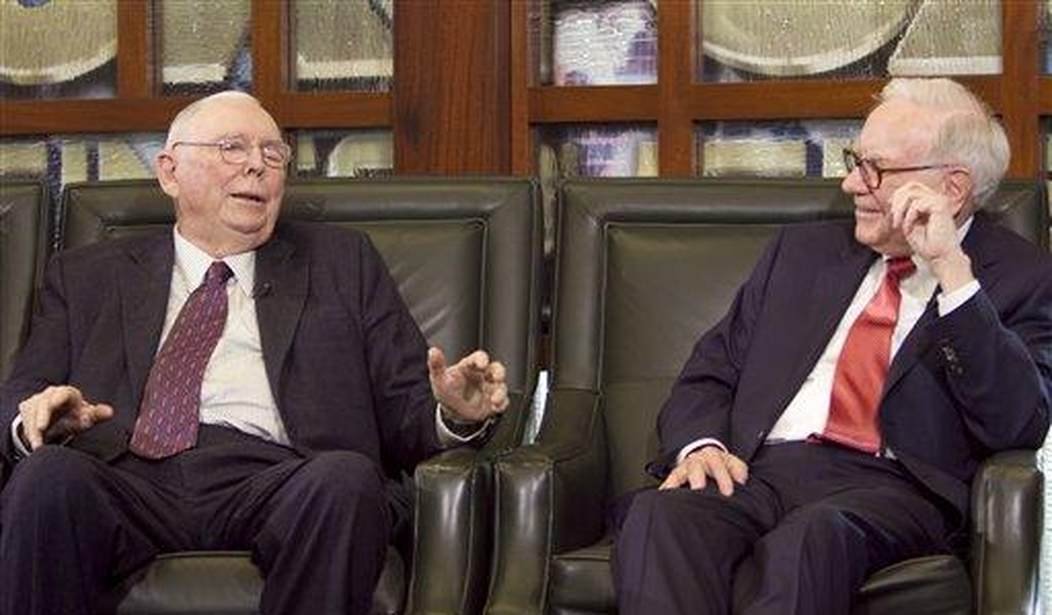Charlie Munger, Warren Buffet’s partner and long-time Vice Chairman of Berkshire Hathaway, has died at the age of 99. He would have turned 100 years old on January 1st.
Munger was not what many people might imagine successful investors to be. He was certainly not someone who spent all day keeping track of share prices. I did’'t know him personally, but I read a lot from and about him and have always believed that there are few people from whom you can learn so much.
Munger himself was incredibly inquisitive and curious. Above all, he was known for being an avid reader. His children once described him as a book on legs. He allegedly read a book a day, especially the biographies of successful people and books about history. Munger was interested in a wide variety of fields of knowledge. He believed that a comprehensive general education was more useful and more important than narrow expertise.
For Munger, investing was not just about figures and calculations. Munger was convinced that, “People calculate too much and think too little.” There are a multitude of factors in every investment decision that cannot be quantified. “You know, they’re important, but you don’t have the numbers. Well, practically everybody overweighs the stuff that can be numbered, because it yields to the statistical techniques they’re taught in academia, and doesn’t mix in the hard-to-measure stuff that may be more important. That is a mistake I’ve tried all my life to avoid, and I have no regrets for having done that.”
In fact, it is noticeable that many very successful investors have enjoyed a general and comprehensive education. Reflection is more important to them than applying familiar financial/mathematical models. Munger repeatedly emphasized the crucial importance of lifelong learning. And learning, to Munger, was always about being open and willing to correct previous opinions and attitudes. Munger used to say that a year in which you do not change your mind about a big idea that is important to you is a wasted year.
Recommended
Another warning from Munger: one of the most serious mistakes is to resist recognizing reality as it is and to suppress or gloss over unpleasant news. “One should recognize reality even when one doesn't like it,” cautioned Munger. That may sound banal, but most people think and act differently. “The reality is too painful to bear, so you just distort it until it’s bearable. We all do that to some extent, and it’s a common psychological misjudgment that causes terrible problems.” What Munger said also corresponds to my own observations: “Failure to handle psychological denial is a common way of people to get broke.”
Many of the errors mentioned here are well documented in the scientific literature. Munger has obviously studied this intensively and drawn conclusions for his investments. Somewhat surprisingly, Munger also highlighted alcohol and drug abuse as a widespread reason for mistakes. “Three things ruin people: drugs, liquor, and leverage.” Munger reported from his own experience: “The four closest friends of my youth were highly intelligent, ethical, humorous types, favored in person and background. Two are long dead, with alcohol a contributing factor, and a third is a living alcoholic – if you call that living. While susceptibility varies, addiction can happen to any of us, through a subtle process where the bonds of degradation are too light to be felt until they are too strong to be broken.” According to Munger, alcoholism is one of the main reasons why people fail in life.
Tren Griffin, who has written a book about Munger’s life lessons, summarized the character traits that Munger believed successful investors must have. Here are some of them:
Patience. It is crucial not to become hyperactive and instead to wait patiently until investment opportunities arise - and to do nothing during this time.
Discipline. This is actually just a reiteration of the first point, because what Munger meant here is the discipline of doing nothing and waiting.
Calm, but courageous and decisive when an opportunity arises.
Honest
Long-term oriented investment horizon
Frugal
Risk averse
On the subject of risk aversion: many investors make the mistake of believing that investing in “quality companies” is safer. However, the price is much more important. “Most investors,” Munger explained, “think quality, as opposed to price, is the determinant of whether something’s risky. But high quality assets can be risky, and low quality assets can be safe. It’s just a matter of the price paid for them … Elevated popular opinion, then, isn’t just the source of low return potential, but also of high risk.”
Success also depends on your ability to correctly recognize the limits of your expertise. Munger and Buffett decided against numerous investments because they found them too complicated. Those who do not know the limits of their expertise are in fact not competent. You should be particularly suspicious if there is a catchy “investment story” that sounds highly plausible. Some of the biggest fraud cases in financial history only worked because the fraudsters – like Bernie Madoff – were excellent storytellers.
When an investment opportunity arises, you have to have the courage to invest on a large scale. The secret of success can be summarized as follows: “The wise one bets heavily when the world offers them that opportunity, They bet when they have the odds. And the rest of the time, they don’t. It’s just that simple.”

























Join the conversation as a VIP Member